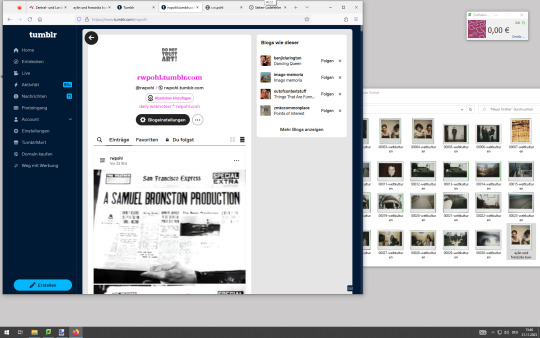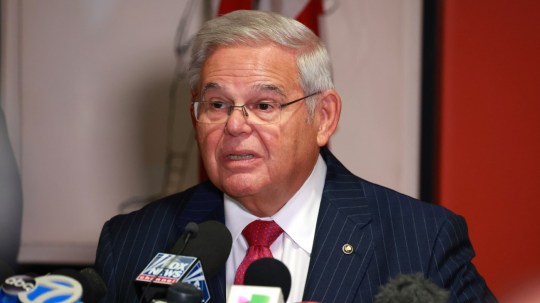#der Senator
Explore tagged Tumblr posts
Text





So ein Tag, auf den ich mich so freute, ... der dürfte nie vergeh’n.
*Ernst(er) Neger
“Auf fröhliches oder baldiges Wiederseh’n, sage ich!!
Noch ein zusätzliches Käffchen vielleicht, der Herr oder die Dame, bevor sie gehen, weil sie es müssen??”
“In Tagen wie diesen ... kein Ende (mehr) in Sicht. Blieb zwar gerne, leider muss ich geh’n. An Tagen wie diesen da wünsch’ ich mir Ohn’-End-lichkeit”.
“Tote Hose angesagt von jetzt an!”
“Hole doch jemand mal einen Arzt herbei oder Ärzte, die sich mit so etwas vielleicht auskennen!”
“Hier kommt Alex(ander) ... mit seiner Horrorshow, auf dem Kreuzzug gegen das Orten oder die Ortung, wollen sie ihre Opfer leiden seh’n,... zwanzig gegen einen, zelebrieren sie Gewalt und Brutalität ... Vorhang auf!! Wenn am Himmel die Sonne untergeht, beginnt für die Hunde die Jagd!“
“... bis dass der Vor-hang fällt!” (Trag’ dich bei mir ...)
(aus: ’Du hast jeden Raum mit Sonne geflutet!’)
“Hier kommt Kurt!” (’Franks Ständer’)
‘Hamburger Ohn’Sorg-Theater’ (mit Heidi Kabel, eine Heidi mit eigenem Vor-hang, Heidi Kabel und Peer Augustin-ski, letzterer wahrscheinlich dann als Seher und/oder Aus-Späher ... von Damen, wegen ‘peer’ als aus dem Englischen erneut entnommenen Verb). *Harry’s Stil, Gay Watch, der/die Transsexuelle
“Obdachlosen mehr einheizen!” (Plakataushang der Diakonie)
‘Kälte-Bus(en) fährt zu euch raus und versorgt euch obdachlosen Frauen mit Wärme.’
(ebenfalls Diakonie)
#Farben von Feuerwehrvans#Feuerwehr New York#Rettungseinsatzkräfte#der Pavian Afrikas#Farbige Communities in den USA#Maul- und Fellfarben bei Pavianen#Wildtiere Afrikas#Affe#Rettungskräfte Deutschland nach Kriegsende#Feuerwehruniformen#Uniformen von Rettungssanitätern u. Kräften#Bremer Senat#US Senat#Man#being close at#der Senator#the male fool#Thor als Donnergott#alte deutsche Feuerwehruniformen#der Blaumann#to get und das Getten von Personen#der Seeretter#Seenotrettungskreuzer#Sieger und Besiegte (in Kriegen)#I shot the Sheriff!#So ein Tag!#der Alltag in der DDR#Schönen Tag!#Folge mir auf Twitter und Youtube!#classics and their mineralwater
1 note
·
View note
Text
Tfw you get past a moment of rough reading. Tfw you can finally untense yourself now that you're sure you don't secretly hate the book, you just didn't like the last chapter or two of it. Tfw you're now certain you would do well to marry your book and perhaps have a few children (terribly un-canon fanfictions)
#this isnt strictly der zauberberg#refers more to the part of The Man Without Qualities i just finished where i didnt understand half the words i was reading#talking about permanent senators and the metaphorical nonmetaphor of Kakania and stuff#my brain was 🤯 and not in a slash pos way#anyway were good now. also Diotima is so cool so far...#The Man without qualities#robert musil
3 notes
·
View notes
Text





*
youtube
#web#zlb#rwpohl.tumblr.com#211123#warnstreik#verdi#öffentlicher dienst#öffentliche einrichtung des landes berlin#senat#bund der steuerzahler#pressefreiheit#meinungsfreiheit#informationsfreiheit
0 notes
Text
Der Senator von New Jersey, Bob Menendez, wurde mit einer neuen Strafanzeige wegen seiner Tätigkeit als ausländischer Agent für Ägypten konfrontiert
Umkämpfter Senator von New Jersey Bob Menendez wurde am Donnerstag in seiner Klage in Manhattan mit einer neuen Anklage konfrontiert, die ihm vorwirft, er habe sich verschworen, als ausländischer Agent für Ägypten zu agieren, während er gleichzeitig eine einflussreiche Position als Vorsitzender des Ausschusses für auswärtige Beziehungen des Senats innehatte. Die ersetzende Anklageschrift kommt…

View On WordPress
#Agent#Ägypten#als#ausländischer#Bob#der#einer#für#Jersey#konfrontiert#Menendez#mit#neuen#seiner#Senator#Strafanzeige#Tätigkeit#von#wegen#wurde
0 notes
Text
One member of our work group, Bill Harris, had extensive experience with child-related legislation, and he went to work with Senator Kennedy's staff to craft our ideas into law.
"The Body Keeps the Score: Mind, brain and body in the transformation of trauma" - Bessel van der Kolk
#book quote#the body keeps the score#bessel van der kolk#nonfiction#bill harris#ted kennedy#senator kennedy#legislation#child protection
0 notes
Text
It is also common to hear criticism of Israel described as antisemitic, a fact that has resulted in the paradox of the German state actively suppressing those Jewish voices that do not conform to their expectations. A state-owned cultural center, Oyoun, faces defunding by the Berlin Senate for hosting an evening of “mourning and hope” put together by Jewish Voice for Just Peace in the Middle East, a Jewish organization. On November 9, the city of Frankfurt on Main forbade a planned rally called “Never again fascism – remembering Kristallnacht, fighting anti-Semitism,” apparently due to the organizer’s past support for Palestine. The police continue to selectively enforce bans on such phrases as “stop genocide,” “free Palestine,” and “stop the war,” often with no prior announcement. A sanctioned protest in Berlin on November 10, organized by a coalition of Jewish and Israeli groups, resulted in several arrests due to the sudden mid-protest banning of some of these phrases. They included the arrest of a Jewish-Israeli woman who held a sign that read: “As a Jew and Israeli: Stop the Genocide in Gaza.” The war in Gaza comes at a moment when every major political party in Germany is lurching rightward on the issue of migration, embracing xenophobic and Islamophobic policies once reserved for the marginalized far right. “Germany cannot accept any more refugees,” Friedrich Merz, the leader of the Christian Democratic Union, the party of Merkel, said. “We have enough antisemitic men in this country.” Scholz, a Social Democrat, appeared on the cover of Der Spiegel in a determined portrait framed by the quote: “We must finally deport on a grand scale.” The specter of antisemitism has proved opportune for mainstream parties, which are threatened by a surge in popularity for the far-right Alternative for Germany, or AfD, whose platform is proudly anti-immigrant. ... Just as reports of attacks on mosques have risen since October 7, recent incidents of antisemitic crimes have produced fear among Jews in Germany. Stars of David have been painted outside Jewish homes; a synagogue in Berlin was firebombed, albeit with no injuries or property damage. These are not isolated events; the number of antisemitic incidents in 2021 was the highest since authorities began tracking them. Yet politicians’ focus on Muslims and migrants as their source runs contrary to the facts. According to the federal police, the “vast majority” of antisemitic crimes – more than 80 percent — are committed by the far right.
488 notes
·
View notes
Text
Psychiatrist Meng-Chuan Lai has observed the recent rollout of laws restricting gender-affirming medical care in the United States with concern, he says. Some legislators have justified these bills, at least in part, by pointing to his work: In 2020, Lai co-authored a study that found transgender and other gender-diverse people are three to six times as likely to be autistic as cisgender people are. Lawyer Tom Rawlings, for example, says he read about Lai’s findings in Spectrum. Last spring, Rawlings helped draft Georgia’s Senate Bill 140, which passed in March and cites the overlap between autism and transness as one reason to ban gender-affirming hormone replacement therapy and surgery for minors. An Arkansas law that also passed in March similarly points to an autism diagnosis as grounds to withhold gender-affirming care from minors. And an “emergency rule” issued by Missouri’s attorney general in April — but terminated in May — would have mandated autism screening for anyone seeking gender-affirming care, including adults. Such policies are driven more by personal ideology than by anything his research suggests, says Lai, associate professor of psychiatry at the University of Toronto in Canada and a clinician at Toronto’s Center for Addiction and Mental Health. Researchers have known about the link for more than a decade. By one 2022 estimate, about 11 percent of trans people also have an autism diagnosis. “That research is real. We don’t dispute it,” says R. Larkin Taylor-Parker, legal director at the Autistic Self Advocacy Network. “It’s been going on for years, and it’s been replicated in multiple studies.” What’s new, they say, is that politicians are misusing the link to argue that “autistic people are incapable of making decisions about our own care.” That misuse has some scientists trying to figure out if — and how — they should push back. Anna van der Miesen, a postdoctoral researcher at the VU University Amsterdam in the Netherlands who has researched the link between autism and transness, says that if your research data are used to pass laws, and “the actual study had nothing to do with the laws at all,” then it’s time to speak up. “We have a responsibility to communicate what the data says, and what it does not say, to the general public — and also to policymakers,” she says.
376 notes
·
View notes
Text
A Oui for Stephane; the Nons for Gabriel


When the executive head met the parliament head in Brussels and Paris, respectively. It's interesting how the roles of the duo have switched ever since Q3 2024.
Time: 241125 - 241127
Bonjour à tous! It's Wednesday, 27 November 2024, a big day for the Eurocrats as the MEP voted for the European Commission for a very slight margin; Meanwhile, the budgetary tightrope walk in Paris could boil down to a motion of censure thus the downfall of the government
Welcome to BAT, for the mid-week recap of manoeuvres, and challenges of the former couple at the heart of power.
STEPHANE SEJOURNE
This morning, the European Parliament has just given Ursula von der Leyen's new Commission the green light. That's...that's it. Regardless of how marginal the approval votes was, after weeks of nail-biting hearings, France's very own Stéphane Séjourné is officially part of the team.
Big shoes to fill. The real challenges begin after the appointment, as Séjourné steps into the crucial role of overseeing Europe's industrial strategy. It's a high-stakes game with Russia, China, and the US all jostling for position. Delivering on VDL's promise of a "holistic simplification" approach (with the sheer annoying amount of Euro-red-rapes we have) and making Europe a global industrial powerhouse (our version of MEGA but less toxic), will not be an easy job.

Green industry is the name of the game. Séjourné will work closely with Spain's Teresa Ribera, the new competition and green transition chief. Together, they'll need to find a way to balance economic growth with climate ambitions, all while navigating the tricky waters of EU competition policy. Expect fireworks! (And not the romantic and fun one this time.)
Speaking of (unromantic) fireworks, some MEPs weren't too thrilled with the Commission's rightward tilt. French Socialists voted against the entire college, protesting the inclusion of Italy's far-right Raffaele Fitto as one of the vice presidents. Not a good sign for the future 5 years of cooperation, really.
Again, this is just the beginning. Séjourné has a busy 100 days ahead of him. He'll need to craft a plan to boost Europe's digital startups and help the continent secure its supply of critical raw materials. Plus, there's that little thing about making sure Europe's car industry stays in Europe. He really needs to get it working, with no effort spared, as he claims so!
(I just realised these three sources are written in 3 different languages. Speaking of European diversity!)
GABRIEL ATTAL
Sainte-Catherine agricultural fair! It was Monday, November 25th. While the budget brouhaha continues to consume the Parisian political class, the former Prime Minister and current Renaissance maestro, might as well recharge himself and ventured into the heartland of France, the Orne region to be precise. Was it a desperate attempt to escape the censure storm brewing in the capital or a cunning move to woo the rural vote? Let's examine the evidence, shall we?
The Scene: Attal arrived fashionably late, a mere 45 minutes behind schedule, but hey, even in the world of cattle auctions, a bit of Parisian flair is to be expected. Upon arrival, he was greeted with the full pomp and ceremony befitting a political heavyweight: local officials beaming, senators nodding sagely, a "parade of television cameras" jostling for the best angle, and the local député, Jérôme Nury, looking particularly pleased with himself1.
The Gifts: Attal was showered with local delicacies: a charming basket of regional produce from the mayor and, the pièce de résistance, a vintage bottle of calvados from Nury, who quipped: "It's the Élysée's official supplier, you need to start getting used to it". Was Nury hinting at Attal's presidential ambitions? ●
The People's Champion: Attal worked the crowd like a seasoned politician, charming the locals with selfies and fielding questions from farmers with ease. Whispers of "You're handsome," "He's so good looking" and "He's really young" followed him as he navigated the fairgrounds. Even the normally stern-faced president of the FNSEA Normandie, Anne-Marie Denis, seemed to soften in his presence.
Master of the Moment: Attal showed a willingness to engage with the issues that matter to rural voters, discussing bovine tuberculosis, agricultural regulations, and the ever-controversial Mercosur trade deal. He even tried his hand at the traditional Sainte-Catherine game of guessing the weight of an ox, displaying a playful side that likely resonated with the fairgoers.
Verdict: The mayor of Briouze, Jacques Fortis, who had previously threatened to resign over the town's exclusion from a rural revitalisation scheme, seemed positively smitten with Attal. He declared the streets "full" for Attal's visit and described the former PM as "very friendly, very simple". High praise indeed from a mayor who, just a few months ago, was ready to walk away from it all.
So, was Attal's agricultural adventure a success? Judging by the smiles, the selfies, and the mayor's glowing review, it seems the former PM made a positive impression. Whether this translates into actual votes in future elections remains to be seen. But one thing's certain: Attal is a master of the political stage, and he knows how to play to his audience of Norman farmers.
It is however a bit more complicated when he is playing 3D chess with a broken board – battling rebels in his own camp, haggling over budget crumbs, and trying to keep a government that looks shakier than a Jenga tower in a windstorm. Former pals? They're already plotting their great escape, eyeing up alternative political real estate. Another day, another drama for our young maestro of mayhem! To let us understand the complexity we shall begin with the topic flying all over TV and newspaper headlines:
Budget Battleground
We need to save!: Prime Minister Michel Barnier, facing a record deficit and mounting debt, has proposed a budget characterized by austerity measures. These include cuts to public spending and, most controversially, a reduction in employer contribution relief.
Opposition from All Sides: The budget has been met with fierce opposition from various political factions. The left, led by the Socialist Party and La France Insoumise, condemns it as "austeritarian" and damaging to social welfare. Meanwhile, even members of Barnier's own "socle commun" coalition, particularly Gabriel Attal's EPR group, are pushing back against specific measures.
Sounds boring right?: Well, let's talk about the stakes. The budget fight goes beyond mere numbers. It represents a struggle for political power and a clash of ideologies. The outcome will have a significant impact on France's economic trajectory and the social well-being of its citizens.
The Censorship Sword
Threat of a No-Confidence Motion: The left has explicitly threatened to table a censure motion if Barnier fails to address their concerns regarding the budget. This motion, if successful, could lead to the government's collapse and potentially trigger early elections.
Marine Le Pen's Crucial Role: The outcome of the censure motion hinges on the stance of RN, which holds the largest opposition bloc in the Assembly. Le Pen has expressed strong criticism of Barnier's budget, threatening to vote against it. Her decision could make or break the government.
A High-Stakes Gamble for Everyone: The censure threat creates a complex strategic dilemma for all parties involved. For the left, it's an opportunity to topple the government and potentially gain power. For Le Pen, it's a chance to assert her influence and advance her own agenda. For Barnier, it's a battle for survival, requiring him to carefully navigate the demands of his opponents and his own allies.
Attal's Role: While Attal is primarily seeking concessions, not a government collapse, the line between the two is blurry. His aggressive stance could be interpreted as a calculated gamble: pushing Barnier to the edge to extract maximum concessions, but risking a censure motion that could empower the RN. Adding to the complexity, Attal needs to manage internal disagreements within EPR. Some members are eager for a showdown with Barnier, while others are more cautious. A misstep could alienate potential allies and weaken his leadership. The management of disagreements is particularly essential when he is facing this problem of:
The traitors
A Resignation With a Message: Martine Madelaine and Sélim Denoyelle, former leaders of the Renaissance party in Charente-Maritime, resigned, citing the movement's "rightward shift." They specifically objected to the government's policies on pensions and immigration, arguing that these measures betrayed the party's original values. This resignation highlights the growing discontent among some Macronists who feel the party has abandoned its centrist platform in favour of a more right-wing agenda.
Minister of Ocean Seeking a New Horizon: Hervé Berville, who served as Secretary of State for the Sea in both the Borne and Attal governments, is also charting a course away from the Macronist core. While he maintains loyalty to Macron, he's looking beyond the current administration, expressing a desire to return to his social-democratic roots. Berville has reportedly been in contact with former President François Hollande and former Prime Minister Bernard Cazeneuve, figures associated with the traditional left and plotting for a solid left wing presidential movement in 2027. He's openly critical of the Macronist alliance with the right, particularly on the budget, which he sees as a drift towards "an Orléanist and bourgeois right."
Your ex's bestman, The Justice Crusader: Gone were the days in the Moines Oyster yard, now Sacha Houlie, still invited Stephane Sejourne as his bestman on his own wedding, emerged as the lead dissenter of the formerly Renaissance AN group, and sat as an independent (after the failed attempt to pull more deputies from EPR) and voiced strong opposition to Gabriel Attal's proposed law on juvenile justice, calling it a "very bad text" that undermines the principles of specialized justice for minors. This time, he was successful. With EPR elected officials Stéphane Travert, Belkhir Belhaddad and Lionel Causse, he significantly amended the text in commission, aligning himself with the left and pushing for a more preventative approach, a move that dealt a major blow to Attal and the EPR group, when the person concerned, very interestingly, was not present in thorough the voting process...
Gabriel Attal would like to make this text a marker. He himself did not show up to defend it.
And why betray? As the saying goes, "There are no permanent friends or enemies; only permanent interests." Some started with genuine convictions, believing in a transformative vision, but found themselves gradually disillusioned. Others, always pragmatic, view political parties like career elevators – when one falls, they're quick to find a more promising route.
A classic cocktail blend of opportunistic moves with genuine ideological differences. For our future RE Secretary General, the challenge is clear: craft a compelling vision that speaks to the post-Macron era. It's about creating a narrative and direction that resonates with current members and potentially attracts new supporters. The goal is to provide enough clarity, inspiration, and strategic direction to keep the party united and motivated through this transitional period...And possibly even for a new presidency.
fin.
8 notes
·
View notes
Text

Ouroboros Der Siebente Ring Stefan George Illus. by Melchior Lechter Berlin: Blaetter für die Kunst, 1907.
* * * *
LETTERS FROM AN AMERICAN
December 7, 2024
Heather Cox Richardson
Dec 08, 2024
On Thursday, December 5, in Chicago, Illinois, former president Barack Obama gave the third in an annual series of lectures he has delivered since 2022 at his foundation’s Democracy Forum, which gathers experts, leaders, and young people to explore ways to safeguard democracy through community action.
Taken together, these lectures are a historical and philosophical exploration of the weaknesses of twenty-first century democracy as well as a road map of directions, some new and some old, for democracy’s defense. In 2022, Obama explored ways to counteract the flood of disinformation swamping a shared reality for decision making; in 2023 he discussed ways to address the extraordinary concentration of wealth that has undermined support for democracy globally.
On Thursday, Obama explored the concept of “pluralism,” a word he defined as meaning simply that “in a democracy, we all have to find a way to live alongside individuals and groups who are different than us.”
But rather than advocating what he called “holding hands and singing ‘Kumbaya’” as we all tolerate each other, Obama described modern pluralism as active work to form coalitions over shared issues. His argument echoed the concepts James Madison, a key framer of the Constitution, explained in Federalist #10 when he was trying to convince inhabitants of a big, diverse country that they should endorse the newly written document.
In 1787, many inhabitants of the fledgling nation objected to the idea of the strong national government proposed under the new constitution. They worried that such a government could fall under the control of a majority that would exercise its power to crush the rights of the minority. Madison agreed that such a calamity was likely in a small country, but argued that the very size and diversity of the people in the proposed United States would guard against such tyranny as people formed coalitions over one issue or another, then dissolved them and formed others. Such constantly shifting coalitions would serve the good of all Americans without forging a permanent powerful majority.
Obama called the Constitution “a rulebook for practicing pluralism.” The Bill of Rights gives us a series of rights that allow us to try to convince others to form coalitions to elect representatives who will “negotiate and compromise and hopefully advance our interests.”
Majority rule determines who wins, but the separation of powers and an independent judiciary are supposed to guarantee that the winners “don’t overreach to try to permanently entrench themselves or violate minority rights,” he said. The losers accept the outcome so long as they know they’ll have a chance to win the next time.
Obama noted that this system worked smoothly after World War II, largely because a booming economy meant rising standards of living that eased friction between different groups: management and labor, industry and agriculture. At the same time, the Cold War helped Americans come together against an external threat, and a limited range of popular culture reinforced a shared perspective on the world—everyone watched the sitcom Gilligan’s Island.
Most of all, though, Obama noted, American pluralism worked well because it largely excluded women and racial, gender, and religious minorities. He pointed out that as late as 2005, when he went to the Senate, he was the only African American there and only the third since Reconstruction. There were two Latinos and fourteen women.
In the 1960s, he noted drily, “things got more complicated.” “[H]istorically marginalized groups—Blacks, Latinos, Asians, Native Americans; women and gays and lesbians; and disabled Americans—demanded a seat at the table. Not only did they insist on a fair share of government-directed resources, but they brought with them new issues, born of their unique experiences that could not just be resolved by just giving them a bigger slice of the pie. So racial minorities insisted that the government intervene more deeply in the private sector and civil society to root out long-standing, systemic discrimination.”
Women wanted control over their own bodies, and gays and lesbians demanded equality before the law, challenging religious and social norms. “[P]olitics,” Obama said, “wasn’t just a fight about tax rates or roads anymore. It was about more fundamental issues that went to the core of our being and how we expected society to structure itself. Issues of identity and status and gender. Issues of family, values, and faith…. [A] lot of people…began to feel that their way of life, the American way of life, was under attack” just as increasing economic inequality made them think that other people were benefiting at their expense.
Increasingly, that economic inequality cloistered people in their own bubbles as unions, churches, and civic institutions decayed. “[W]ith the Cold War over, with generations scarred by Vietnam and Iraq and a media landscape that would shatter into a million disparate voices,” he said, Americans lost the sense of “a common national story or a common national purpose.” Media companies have played to extremes, and “[e]very election becomes an act of mortal combat.”
With that sense, there is “an increasing willingness on the part of politicians and their followers to violate democratic norms, to do anything they can to get their way, to use the power of the state to target critics and journalists and political rivals, and to even resort to violence in order to gain and hold on to power.”
For all that he was speaking in 2024, Obama could have been describing the realization of the fears of those opposed to the Constitution in 1787.
But he did not agree that those anti-Federalists had won the debate. Instead, he adapted Madison’s theory of pluralism to the modern era. Obama stood firm on the idea that the way to reclaim democracy is to build coalitions around taking action on issues that matter to the American people without regard to personal identities or political affiliations. Pluralism, Obama said, “is about recognizing that in a democracy, power comes from forging alliances, and building coalitions, and making room in those coalitions not only for the woke but also for the waking.”
And that, in many ways, identified the elephant—or rather the donkey—in the room. In the 2024 election, the Democratic Party under Vice President Kamala Harris and Minnesota governor Tim Walz very deliberately moved away from so-called identity politics: the idea that a person builds their political orientation around their pre-existing social identity. During the campaign, Harris rarely referred to the fact that if elected, she would be the first woman, as well as the first woman of color, to hold the presidency: when attendees at the Democratic National Convention wore white in honor of the suffragists, Harris wore black.
Instead, Harris and Walz embraced investing in the middle class and supporting small businesses. But that shift to the center did not translate into a presidential victory in 2024, and those on the political left, as well as progressive Democrats, are not convinced it was a good move.
Since the rise of Donald Trump, the MAGA party has been the one championing identity politics, rejecting American pluralism in favor of centering whiteness, a certain kind of individualist masculinity, Christianity, and misogyny. Making common cause with Republicans, even non-MAGA Republicans, in the face of such politics seems to the left and progressive Democrats self-defeating.
Obama disagrees. “[I]t’s understandable that people who have been oppressed or marginalized want to tell their stories and give voice fully to their experiences—to not have to hold back and censor themselves, especially because so many of them have been silenced in the past,” he said, “But too often, focusing on our differences leads to this notion of fixed victims and fixed villains.”
He stood firm against compromising core principles but said: “In order to build lasting majorities that support justice—not just for feeling good, not just for getting along, to deliver the goods—we have to be open to framing our issues, our causes, what we believe in in terms of ‘we’ and not just ‘us’ and ‘them.’”
And he emphasized that such cooperation works best when it’s about action, rather than just words, because action requires that people invest themselves in a common project. “It won't eradicate people's prejudices, but it will remind people that they don't have to agree on everything to at least agree on some things. And that there are some things we cannot do alone.” “It’s about agency and relationships.”
Then Obama addressed the political crisis of this moment, the one the anti-Federalists feared: “What happens when the other side has repeatedly and abundantly made clear they’re not interested in playing by the rules?” When that happens, he said, “pluralism does not call for us” to accept it. “[W]e have to stand firm and speak out and organize and mobilize as forcefully as we can.” Even then, though, “it’s important to look for allies in unlikely places,” he said, noting that “people on the other side…may share our beliefs in sticking to the rules, observing norms,” and that supporting them might help them “to exert influence on people they’ve got relationships with within the other party.”
The power of pluralism, he said, is that it can make people recognize their common experiences and common values. That, he said, is how we break the cycle of cynicism in our politics.
Obama’s argument has already drawn criticism. At MSNBC, Ben Burgis condemned Obama’s “centrist liberalism” as inadequate to address the real problems of inequality and warned that his political approach is outdated.
But it is striking how much Obama’s embrace of pluralism echoes that of James Madison, who had in his lifetime witnessed a group of wildly diverse colonists talk, write letters, argue, and organize to forge themselves into a movement that could throw off the age-old system of monarchy in favor of creating something altogether new.
LETTERS FROM AN AMERICAN
HEATHER COX RICHARDSON
#Heather Cox Richardson#Letters From An American#Barack Obama#both sides#Pluralism#Bill of Rights#centrist liberalism#allies#economic inequality
8 notes
·
View notes
Text
Eliza Dushku supporting the "Yes on 4" Massachusetts ballot initiative, October 2024.
instagram


Question 4 will establish regulated, therapeutic access to natural psychedelic medicines for the treatment of mental health conditions in Massachusetts.
elizadushku: An HONOR to introduce and stand with Dr. Bessel van der Kolk [far left, top photo], Professor Emeritus at Boston University School of Medicine, President of the Trauma Research Foundation, and author of the New York Times bestseller, The Body Keeps the Score: Brain, Mind, and Body in the Healing of Trauma. *Arguably THE Doctor and leading expert on Trauma, worldwide, who we should be listening to on this topic. It is a true honor, our Dr. van der Kolk ...
Incredible turnout on the #Boston, #Massachusetts State House stairs today for a press conference on ballot Question 4 with a group of caring and responsible medical / mental healthcare professionals ...
(source) (quote source)
elizadushku: Like most parents, my husband, Peter and I make important decisions based on what’s best for our kids. As advocates for YES on 4, rather than give in to fearmongering, we did a lot of research. What we learned is that the data overwhelmingly shows that creating regulated, therapeutic access to natural psychedelic medicines for adults struggling with serious mental health challenges positively impacts public health.
The proposed bill, Question 4, has been endorsed by 45 state elected officials (including MA Senator Elizabeth Warren), five Massachusetts city councils, and more than 240 healthcare professionals.
We hope you’ll give a listen!
(source)
-----
MOD NOTE: This particular ballot initiative is only for Massachusetts voters in the US. (If you haven't already voted in US elections the last day to vote is tomorrow, November 5.)
Also we have a new tag: 'psychedelic assisted therapy'. You can always check the current tags on our Navigation page.
#eliza dushku#social media#instagram#voting#psychedelic assisted therapy#quote#mod post#video#reposted no editing#event
9 notes
·
View notes
Text
Best Place to Sleep (Commander Fox x GN Asexual Aromantic Reader)
Fox x Asexual Aromantic Reader
Word Count: 2165
Warnings: minors DNI, some chaste kissing, bed sharing, reader is sex-repulsed aroace who is particular about kissing
A/N: I wrote these headcanons for clones with ace partners and basically now I want to write at least one fic for each clone with a partner who is somewhere on the aroace spectrum. (I’m taking requests if you have any.) Ultimately the relationship in this one is going to be a queerplatonic partnership with I love yous. Similar vibes to the Rex fic I posted a few weeks back, but different scenario for our boy Fox who would definitely wear pajamas all day every day if he could.
Also I'm sorry. I had an outline for this and then I started writing and it sprouted legs and went down its own path, so it took a little while to put together.
It started when you literally ran into Commander Fox while running between senators’ offices. You assisted the senator from your home planet, but half the time felt like a senate page running flimsi documents around as bills were written and rewritten.
You turned the corner with piles of flimsi and two datapads in your arms and practically dumped it all on a certain clone’s chest. At first you sensed annoyance under his bucket, but then he kneeled down to help you gather everything.
“I’m sorry,” you said.
“It’s alright,” he sighed. He seemed tired, but it was the middle of the day.
“Can I get you some caf as an apology… Com…man…der??” You weren’t exactly sure of his rank.
You heard a little chuckle. “Fox. Commander Fox.” He shrugged. “Sure.” He walked you to your destination where you unceremoniously dumped all the documents and datapads on a desk and walked out. This was more important and your day was nearly done anyway. The senator had gone home for some event, so surely you could get this nice man some caf before heading home yourself.
You walked to the cafe nearby and ordered drinks. Once you sat down, he took his helmet off. Sure, he was a clone, but there was a familiarity there, like you knew some things about him before he even spoke. You were both tired from long days, but sipping that caf seemed to calm you both. You made polite conversation and then it turned into frank discussions of your jobs. Relating to Fox, even for a brief time, helped relieve some stress. You invited him for caf the next week and before you knew it, the two of you always had a reason to run into each other and catch up over caf.
Eventually you decided to ask him over to your place. You were appalled when he shared the food he was limited to eating and clones didn’t really make credits, so going out and trying new things was out of the question for him. Until now. You had no problem introducing him to the concept of take out food. He wasn’t sure what to order so you ordered an abundance of things which he helped carry to your home. You opened the door for him. It wasn’t much, but it was your space and you were grateful for quiet, respectful neighbors. He looked around in awe.
“You have your own couch?! A kitchen, your own refresher, and I bet you also have a bed.” You laughed a little, and he was being a bit silly, but it dawned on you that the clones really didn’t have much to call their own.
“Yeah, this is all mine,” you replied. “Make yourself at home.”
He put the bags down and you opened the containers and got some plates. He took off his bucket along with the rest of his armor. It was the first time you’d seen him in just his blacks and he smiled a little sheepishly at you. You grinned.
“Okay handsome, let’s eat.”
He came over and took a plate. You explained the dishes you’d chosen. Two types of noodles, one fried with vegetables. Another plain, but it would go well with the various sauteed meats and vegetables, some spicier than others. He took a little of everything and had a hard time picking a favorite.
“There’s so much food in the galaxy,” you said. “No need to have a favorite just from these.”
“They’re all so good though,” he replied between bites. “So much flavor. I’m even starting to feel full.”
You smiled. He was clearly enjoying himself, taking his time, not having to get back to work right away, or deal with some issue.
“Do you want to stay for a while,” you asked with hopeful quietness.
“If that’s okay,” he replied. You nodded and he helped you put the leftovers away before sitting on the couch and turning on a holo. He didn’t mean to, but part way through the movie he’d fallen asleep. You laid down on the other end of the couch, but with your legs resting on his, unsure yet of how close you wanted to get. You finished the movie while he softly snored. You wanted to stay with him, but chose instead to adjust him with some pillows so his neck wouldn’t hurt in the morning. He was completely out. You left him to sleep there and went to your own room, but your bed felt colder than it ever had before. You managed to fall asleep, though, and were only woken up when you heard his feet patter down the hallway to the refresher in the morning. You got up and threw a robe on, hoping he wasn’t about to leave, but he was already in his armor. You couldn’t stop your face from dropping.
“Sorry,” he said. “I have to get back, but… well, that was the nicest night I’ve had in a really long time. And that couch is so comfortable. The best place to sleep. Much more comfortable than my bed. Thank you for having me over.”
You searched for a way to make sure this wasn’t a one time thing.
“Fox? Do you think you’d like to come over again sometime?”
“What are you doing tonight,” he replied with a grin. Before you could stop yourself you threw your arms around him in a hug and whispered “see you tonight.”
Fox started coming over at least once a week. Walking home with him whenever you both worked, trying new foods, and relaxing after a long day soon became everything. Sometimes he would spend the night, but he gave you space and slept on the couch. So he wouldn’t have to wear his blacks so much, you started buying him clothes for his overnight stays. Several hoodies, t-shirts, sweatpants, and comfortable socks all became staples. He loved fluffy socks. Although he expressed concerns that you were wasting all your money on him, you immediately shushed him. You weren’t going to hear it. He had made your life so much better, so much more comfortable. You wanted him to be comfortable and happy too.
Things were going swimmingly, with lots of hugs and some cuddles. He was always a gentleman. You started sharing chores and were starting to feel bad that Fox slept on the couch so much, but he seemed to love the couch. You didn’t want to push in any particular direction if you weren’t ready for some serious conversation. Up until now things just seemed to flow. Everything else seemed easy. When he washed dishes and you dried and put them away? Easy. He would lean in for a keldabe kiss in the middle of it and everything seemed right and fine and happy.
One evening you went out with some friends and they wanted to hear everything. Although they were usually very understanding of your relationship style, up until now they seemed to think that finding someone to commit to that relationship style would be hard.
“Fox and I have something special,” you said firmly. “Are we lovers? No. Not in the way people think. But I am in love with him. He’s my person. I don’t know how else to say it.”
They all froze and stared at you. That was the first time you acknowledged how you felt out loud. Fox had managed to climb into your heart in a way no one else had. The thought was immediately followed by your own realization that you needed to talk to him about it.
The next day Fox was coming over and you took a deep breath as you walked down the halls around the senate building. You met him at the usual place and he reached for your hand. As you walked home, you kept sighing to yourself.
“What is it,” he asked, stopping in the middle of the walkway. “I have to know.”
Before you could stop the words they came out like an avalanche. “How do you feel about me? Because I think I love you.”
He took his bucket off and softly rested his forehead to yours. Immense relief poured from his soul. He closed his eyes briefly as if his own sense of contentment could slow down the universe for a moment.
“I love you, cyar’ika.”
“How do you feel about things, as far as the physical things between us?”
“Well I was wondering if I could kiss you, but otherwise, I’m very happy. Cuddling up to you is everything.” He pulled you into his arms and rested his cheek against you.
After a few moments you continued walking back to your place with a new sense of peace. You talked about your boundaries and wanted to know his. Nothing was a surprise. He was happy, just as he seemed to be happy. Nothing was missing for him just as nothing was missing for you.
After you walked through the door of your home, you said, “You can kiss me. Only some places though. I don’t like the idea of tongues and all that.” You made a face that made him laugh a little, but he took your words to heart.
“My tongue will stay in my mouth, don’t worry,” he replied. “I will need detailed notes on where I can kiss you. And for the record, you can kiss me anywhere any time, but there is no pressure to do that.” He changed into his hoodie and pants along with socks with foxes on them. He sat on the couch and pulled you into his lap. You gave him a keldabe kiss and he added a sweet kiss to your cheek.
“Will you sleep with me tonight,” you asked quietly. “Just sleep. I don’t like the idea of you being on the couch all the time and me in bed alone when there’s room.”
“Are you sure? I don’t know if I’m a nice person to share a bed with.”
You suddenly realized that sleeping on the couch might also be a comfort thing for him. He had never done any relationship like this before.
“What are you worried about, exactly?”
“I don’t know,” he said. “I just don’t want to take over the bed, or snore loud, or I don’t know. It’s your space.”
“I’d like it to be our space,” you answered.
That night he got into bed with you. He pulled you into his arms and held you, kissing your forehead and falling asleep almost immediately. You laid an arm across his middle and it wasn’t long before you were asleep too.
You woke up in a different position, but he was still cuddled against your back, one arm loosely around you. You could feel him breathing on your shoulder. You finally felt warm enough with him there. It was the most relaxed you’d ever felt. He started to stir and gave you a sleepy morning smile when you rolled over and back into his arms.
“This is the best bed,” he said. “Best I ever slept on. And so warm.” He somehow managed to snuggle up closer. You knew your life would never be the same.
Fox moved in, in every way but on flimsi. He still had official quarters since he was required to, but they were pretty bare and only served as a place to hide away and get a few minutes of shut eye when he had to work long into the night. For whatever reason, it seemed Hound allowed Grizzer to use his bed to take naps when he wasn’t using it.
The routines of life started having more joy in them. After he’d shower, he loved it when you massaged his scalp and ran your fingers through his hair. You loved it when he brought home your favorite foods so you didn’t have to bother cooking and cleaning up.
A few years into the relationship and you wondered what life was like before Fox. You looked at him as he ate breakfast and out of no where wanted to kiss him. Remembering his “you can kiss me anywhere any time,” you placed a soft kiss on his temple before sitting down next to him. His face felt a flush of heat as if he had fallen in love all over again. He grinned and kissed your cheek.
He playfully asked, “Will you walk me to work, my love?”
“Of course,” you replied, “but only if you walk me to work too.”
“That can be arranged,” he answered. “I’m going that way anyway.”
When you got into bed that night, despite all the nights that came before it, he still said, “This is the best place to sleep.”
“Oh? You still love this mattress. Better than the GAR issue ones, I’m told.”
“That’s not it,” he said, laying next to you with a yawn and resting his forehead on yours. “It’s the best place because it’s with you.”
Tagging: @starrrgazingbunny @dukeoftheblackstar @staycalmandhugaclone
#commander fox x reader#commander fox x araoce reader#commander fox x gn reader#commander fox fanfiction#tcw fanfiction#commander fox#reader insert#fox anon#aroace reader#asexual reader#aromantic reader#commander fox x aromantic reader#commander fox x asexual reader
54 notes
·
View notes
Text
Namibia, Botswana, Simbabwe 2024/25 - Tag 1
Herrschaften und Oukies!
Heute Nachmittag war es endlich soweit und wir machten uns auf den Weg nach Düsseldorf!
Richtig Düsseldorf und nicht Frankfurt, wie sonst immer.

Denn dieses Mal fliegen wir zuerst mit der guten, alten Lufthansa von Düsseldorf nach Frankfurt und dann weiter im Nachtflug, mit Discovery non-stop, nach Windhoek.

Am Airport in Düsseldorf angekommen parkten wir unser Auto im Parkhaus unter dem Terminal. Mit dem Aufzug ging es direkt in die Abflughalle und dort konnten wir für unseren Flug mit der Lufthansa Düsseldorf – Frankfurt sofort zur Sicherheitskontrolle durchgehen.
Eine Fast Lane steht hier für die Business Class zur Verfügung, die nicht so stark frequentiert war, wie die beiden regulären Kontrollstellen. Nach einer recht kurzen Wartezeit waren wir auch schon auf dem Weg zur Lufthansa Lounge.

Die Lounge-Landschaft in Düsseldorf ist glücklicherweise übersichtlich. Sowohl Terminal A als auch C haben jeweils zwei Lounges. Im Bereich des Terminal B eine weitere Lounge. Bei den A-Gates finden Fluggäste auf Grund der Vorherrschaft der Lufthansa-Gruppe auch nur Lufthansa-Lounges.
Die Lounge befindet sich im Sicherheitsbereich des Flughafens im Terminal B im Bereich der Schengen-Gates. Das Terminal ist wie ein langer Schlauch angeordnet, so dass die Lounge kaum zu verfehlen ist, wenn man sich auf dem Hauptpfad bewegt.

Die Rezeption der Lufthansa Business Lounge befindet sich hinter einer kleinen Brücke und ist durch eine Schiebtür vom Rest des Terminals abgetrennt.

Betritt man die Lounge von der Rezeption aus, so befindet man sich ziemlich genau in der Mitte der Lounge. Nach dem Check-In-Desk erschließt sich die volle Lounge als ein breiter Raum nach links und rechts.

Vom Eingang aus gesehen links befindet sich der Lounge-Bereich, rechts der Rezeption findet man zunächst das Buffet, dann einen recht großen Bistro-Bereich.

Ganz hinten, rechts in der Ecke, schließt sich der recht geräumigen Raucherraum an, der ebenfalls mit Bistrotischen und Stühlen möbliert ist.

In dem anderen Teil der Lounge befinden sich Arbeitsplätze, Zeitschriften, die Toiletten und weitere Sitzgelegenheiten. Allerdings gibt es Duschen hier nur in der Senator Lounge.

Von der Lounge hatten wir einen guten Blick auf das Vorfeld zwischen Flugsteig A und Flugsteig B.

Anfang der Woche bekamen wir die Benachrichtigung, dass wir mit einer kleineren Maschine fliegen werden. Somit ändert sich auch die Bestuhlung (von 2 - 2 zu 1 -1) und natürlich ebenfalls unsere Sitzplatzreservierungen.

Wobei die Bestuhlung irreführend ist. Die tatsächliche Bestuhlung ist auch vorne 2 - 2, hier bleibt dann der 2te Platz einfach frei. Ein variabler Vorhang trennt die Business von der Holzklasse.
Alle Plätze in der Holzklasse sind deswegen auch belegt. Vorne bei uns, in der Business Class, sind noch ganze drei Plätze frei.

Es zieht sich, bis alle sitzen. Dann kann das Essen serviert werden, denn auch für diese wirklich kurze Strecke gibt es bei den "vorne Sitzern" Mahlzeiten.

Der Pilot drückt kräftig auf das Gaspedal, um die Zeitverzögerungen etwas einzufangen, zumal der City-Hopper bereits mit Verspätung in Düsseldorf eintraf.

In Frankfurt angekommen brauchen wir uns nicht mehr um das Gepäck zu kümmern. Das wurde bereits in Düsseldorf durchgecheckt.

Lediglich mit unserem Handgepäck bewaffnet geht es für uns zum richtigen Abfluggate und der nächstgelegenen Lufthansa Lounge.

Uns bleiben rund 2 Stunden Aufenthalt, bevor unser Flieger gegen 22 Uhr in Richtung Windhoek startet. Die Zeit nutzen wir unter anderem auch, um uns noch einmal etwas frisch zu machen.

Die Business Class ist komplett ausgebucht. Das erstaunt uns jedoch gar nicht, da die Discover Airline den Flugplan am Donnerstag und Freitag kräftig durcheinander gewirbelt hat.

Der Donnerstag Abend Flug wurde einfach auf den Freitag Morgen verschoben, also rund 10 Stunden Verspätung - und dafür fiel der Freitag Abend Flug mal ganz aus.

Natürlich saßen wir da Nagel kauend zu Hause vor dem Computer und checkten abwechselnd den Flugplan. Man muss einfach festhalten, dass Discover ein Saftladen ist.

Wir richten uns auf unseren Plätzen ein, machen es uns gemütlich.

Das Abendessen wird zügig nach dem Abflug serviert. Wir entscheiden uns bei der Vorspeise jeweils 1x für den Kalbsrückenbraten und 1x den Lachs.


Bei der Hauptspeise gibt es für uns 1x den Heilbutt und 1x die gezupfte Entenbrust.

Die Nachspeise fällt dieses Mal wirklich sehr übersichtlich aus: 1x die Käseplatte und 1x die süße Variante.


Nach dem obligatorischen Spielfilm wir schaffen es tatsächlich auch ein wenig zu schlafen.

Frühstück gab es dann um gegen 8 Uhr, da waren wir noch über Angola.

Doch bald darauf sehen wir schon die bekannte Landschaft und um 9.30 Uhr erreichen wir den Hosea Kutako Airport.

Wie schon zu seligen Air-Namibia-Zeiten parkt die Maschine draußen auf dem Flugfeld und alle Passagiere müssen die Treppen runter und über das Rollfeld laufen.

Wir sind glücklicherweise gut vorbereitet, denn die Flugzeug Crew hat dieses Mal keine Einreiseformulare verteilt. Zum Glück haben wir unsere eigenen dabei und natürlich schon zu Hause ausgefüllt.
Unser Assistent Service ist auch auf Zack und schiebt unsere Mini-Reisegruppe durch den Diplomaten Schalter und so stehen wir ruckizucki am Kofferband.
Recht herzlichen Dank für die Aufmerksamkeit!
Lekker Slaap!
Angie, Micha, Mama und der Hasenbär
6 notes
·
View notes
Text
Weitere Artikel zum Thema
"Kampf !!! der Polizei Sachsen gegen Rechtsextreme"
unter dem hier verlinkten Artikel.
Jens Maier und Tino Chrupalla gefällt das.
2 notes
·
View notes
Text
A growing list of physical attacks on German politicians in recent weeks has brought condemnation from leaders and fears about the future of democracy in Germany and Europe.
The latest attacks this week included Berlin State Senator and former Mayor Franziska Giffey, who was attacked Tuesday at an event in a Berlin library. Reports say she was hit from behind by a man with a bag containing something “hard and heavy.” She was treated for her injuries and the man was taken into custody.
Later that same day, a 47-year-old female Green Party politician was attacked by two people while putting up election posters in Dresden.
German state-funded media company Deutsche Welle caught the assault on video. It shows the city council candidate being verbally attacked and spat on by a woman while the attacker’s male companion could be seen shoving members of the candidate’s team.
Along with insults, the attackers reportedly shouted support for the German right-wing Alternative for Germany party.
Two right-wing politicians were also attacked this week. Police in the southwestern city of Stuttgart say two state lawmakers from the far-right party Alternative for Germany (AfD) were verbally and physically abused late Wednesday as they managed an information booth about their party. Police say the injuries were not serious.
The worst of the recent attacks occurred a week ago in Dresden, where member of the European Parliament Matthias Ecke, a member of German Chancellor Olaf Scholz’s German Social Democrats (SPD) party, was brutally beaten by four assailants while putting up campaign posters. Party officials say his injuries will require surgery.
Four suspects in the attack on Ecke — aged 17 and 18 — have since been arrested.
The attacks have drawn commendation from German lawmakers from across the political spectrum. In a video message Thursday, Scholz referred to them as “attacks on our democracy” that “concern all of us, which is why we do not stand idly by when public officials, campaigners or volunteers are brutally attacked.”
He suggested one of the best things people can do to fight back is to vote in next month’s European Parliamentary elections.
European Commission President Ursula von der Leyen, a former German politician herself, also spoke out against the violence Thursday during comments to the German conservative CDU party congress in Berlin.
“When we talk about threats to our democracy, we are not just talking about positions and content. It's also about people,” she said. “We must protect all those who stand up for our democratic society and our country, regardless of which party they belong to."
In an interview with Reuters television Friday, Bundeswehr University German political scientist Jasmin Riedl said the attacks are a worrying sign for liberal democracy.
“When it comes to verbal violence, people are supposed to be delegitimized. And that in itself is problematic for political competition. But when people are attacked, they withdraw from the political arena,” she said. “That ruins the competition because it makes it unfair for them. Certain groups are simply removed one by one."
3 notes
·
View notes
Text
Sharing this story because it deserves more international attention:
The international cultural center Oyoun in Berlin is at risk of being shut down, because of a Palestinian solidarity event that took place there on Nov. 4th. The event was organized by the German chapter of Jewish Voice for Peace, however Oyoun is still being accused of antisemitism. Basically, they're being shut down for hosting an event by a Jewish organization, which is completely abhorrent.
They've drafted an open letter to the Berlin senate to hopefully change their minds about cutting funding. You can sign this open letter and read the full text in English here
5 notes
·
View notes
Photo


Only 12 years after the end of WWII the 1957 Interbau building exhibition gathered progressive international and German architects in Berlin to design houses, apartment buildings and infrastructural architecture for the Hansaviertel which had been almost entirely destroyed by the war. The Interbau dates back to 1951 when the Senate of West-Berlin contemplated the idea of having a building exhibition draw attention to the city and respond to the construction of the Stalinallee in East-Berlin. After a jury had selected Gerhard Jobst’s and Willy Kreuer’s town planning design among 98 competition entries a roster of potential architects was drawn up, among them International masters like Arne Jacobsen, Oscar Niemeyer and Walter Gropius but also Egon Eiermann, Sep Ruf or Paul Schneider-Esleben as representatives of German postwar modernism. The resulting quarter ultimately comprised 1,300 housing units, a library, a shopping center, two churches and a day care center.
Still the best overview of the Hansaviertel’s history and architecture provides the monograph “Das Hansaviertel - Internationale Nachkriegsmoderne in Berlin” by Gabi Dolff-Bonekämper and photographer Franziska Schmidt, published in 1999 by Verlag Bauwesen. Divided into two distinctive parts the book provides a comprehensive account of the events leading up to the 1957 Interbau, the underlying urban planning as well as the architects involved. Interestingly the authors have also included a collection of international reactions to the Interbau, largely positive and affirmative of the initiator’s intention to reestablish Germany on the stage of international progressive architecture. The second and larger part of the book is then dedicated to the architecture: structured along tours Dolff-Bonekämper explores the different parts of the quarter and with the help of plans and Schmidt’s photographs examines each building in great detail. Since she also covers buildings (the school, the Haus der Kulturen der Welt and the Unité d’Habitation) related to the Interbau but located outside the Hansaviertel a complete picture of the new Hansaviertel and the many innovative buildings emerges. A great read!
#interbau 1957#archietctural history#nachkriegsarchitektur#nachkriegsmoderne#architektur#berlin#architecture book#book#monograph
37 notes
·
View notes